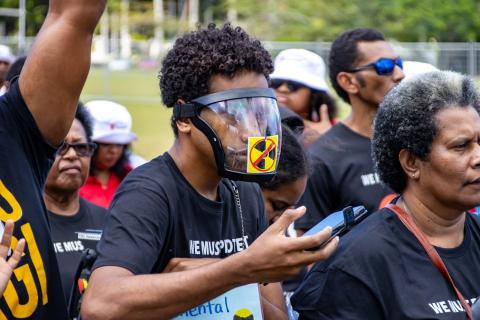In the wake of the attempt on the life of Sergei Skripal, the ex-Russian spy, and his daughter Yulia in Britain, practically all Western countries joined to expel select Russian diplomats. This, however, was not the case with Japan and South Korea.
Perhaps more than any other countries, Japan and South Korea might have been expected to demonstrate solidarity with the West, especially the US, supposedly the guarantor of their security against possible North Korean attacks.
Economic considerations may have played a role. South Korea, for example, seriously considered a gas line from Russia to the Korean Peninsula. Japan also has its own territorial tension with Russia over islands off Hokkaido. Yet it is unlikely these are major reasons behind Japan and South Korea’s decision not to expel Russian diplomats.
Neither Seoul nor Tokyo remain confident Washington will provide protection in the event of complications, or possibly war, in North Asia, in which Russia could be involved alongside other players. Leaders in Japan and South Korea are attentive to President Donald Trump’s remarks and his clearly transactional approach to alliances.
Before his election, Trump notoriously declared the US would side only with those allies who would pay what he regarded as their fair share of the expenses, otherwise “the US must be prepared to let these countries defend themselves”.
Trump later cast doubt on the applicability of Article 5 in NATO’s charter, which obliged members of the alliance to protect one another if attacked. Trump saw some allies more as competitors; for example, he threatened to put tariffs on German imports.
Trump’s approach to South Korea and Japan has been even more startling. Against the backdrop of warnings North Korean leader Kim Jong-un has developed ballistic missiles capable of striking the US, Trump has mused about starting a war, even if this would lead to a devastating attack on South Korea and Japan.
In August, US Senator Lindsey Graham conveyed a conversation with Trump, stating:
If there’s going to be a war to stop him, it will be over there … If thousands die, they’re going to die over there. They’re not going to die over here – and he’s told me that to my face.
Trump’s foreign policy posture was pragmatic and mercantilist, exhibiting a clear disregard for allies. But he is also extremely erratic. Almost simultaneously, he announced the withdrawal of American troops from Syria and readiness to strike the same Syria, even if that would entail a collision with Russia and the prospect of a major conflict.
All of this tumult is watched carefully by Seoul and Tokyo, with some wondering whether the relationship with Washington is an asset or liability. Anxious not to be entangled in the unforeseeable consequences of a conflict with Moscow, when the decision came to expel Russian diplomats, they preferred to remain bystanders.

